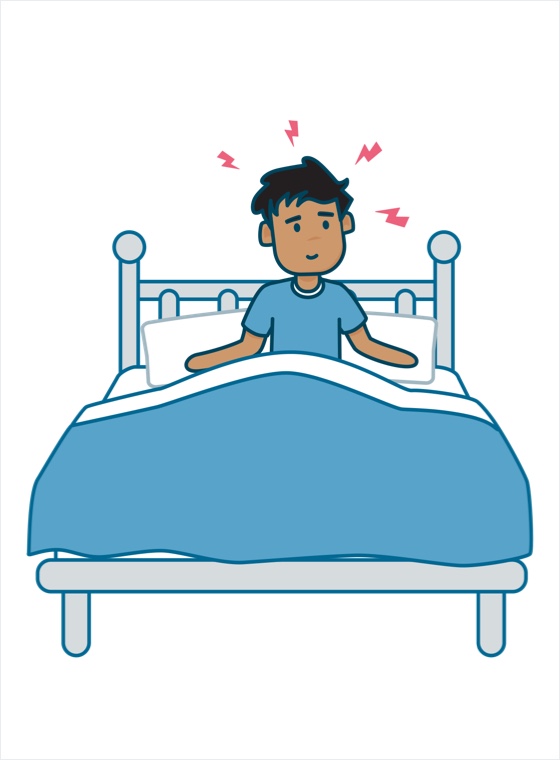Sleep
You will spend about one third of your life sleeping and how much sleep you need is different for each person. It is very common to have problems with sleep after a brain injury and when you have chronic pain. You might have trouble falling or staying asleep, sleeping too much, snoring or even nightmares. Poor sleep can have a big impact on your daily life – you might feel tired all the time, it can make your pain worse and make your feel down. It can take time but working on improving your ‘sleep brick’ is a key part to managing your pain.
Play the video to learn how to use the tips and tools to Be Pain Smart.
Select the Next button to see the Sleep tips and tools.






